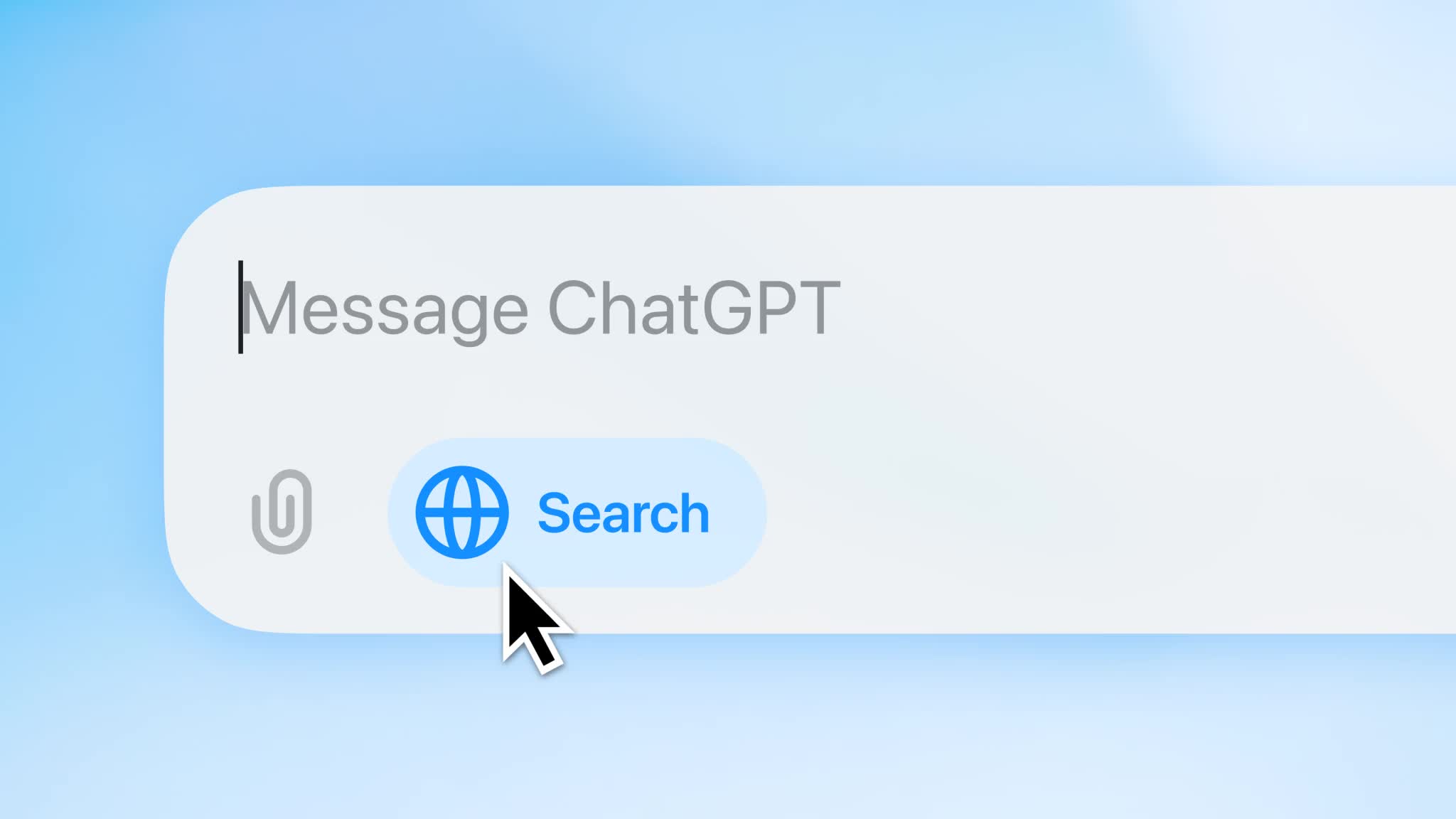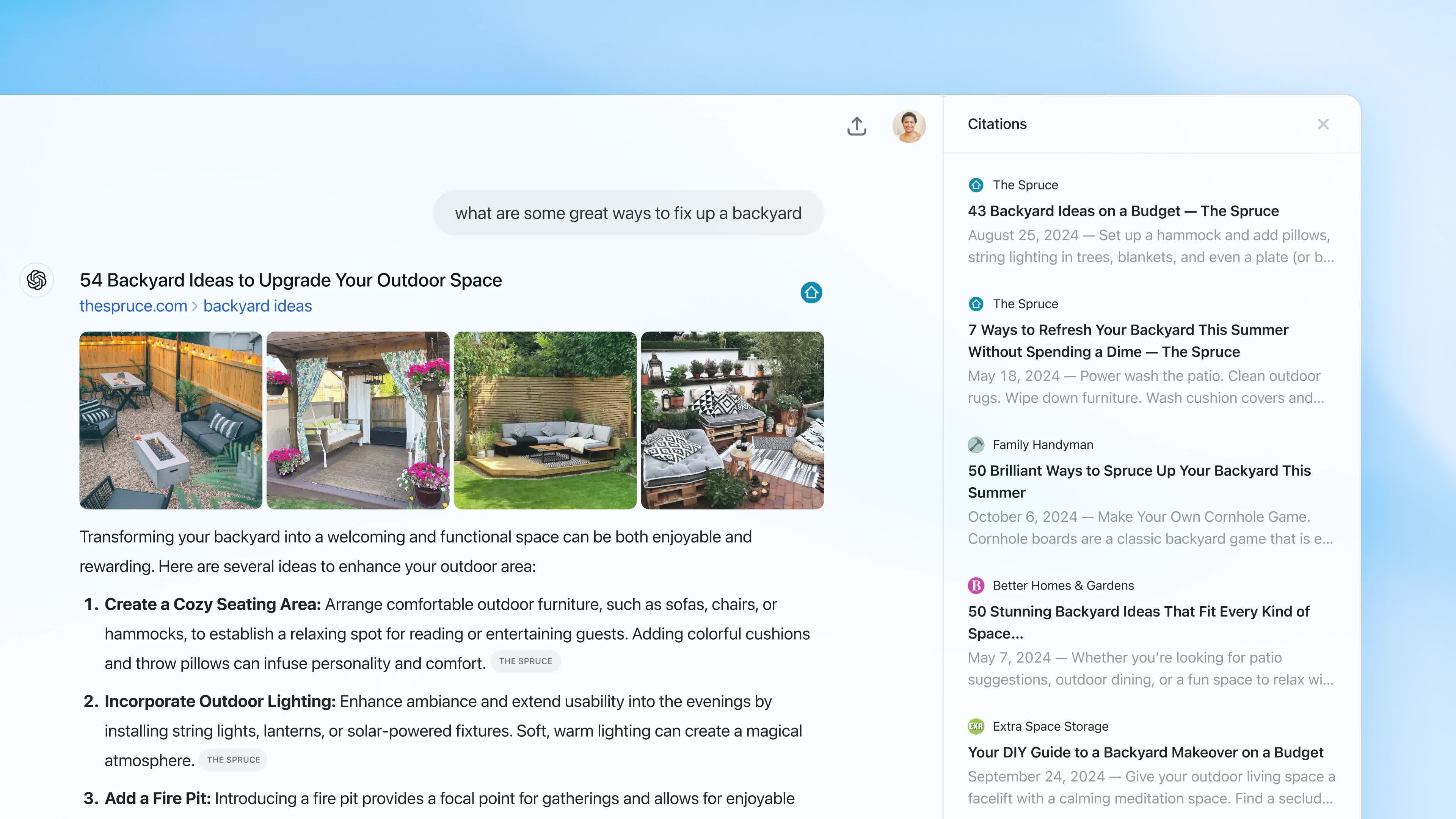Serving tech enthusiasts for over 25 years.
TechSpot means tech analysis and advice you can trust.
AI vs Web: Alphabet attempted to curb ChatGPT's growing popularity by accelerating the launch of its AI-based consumer services. However, the chatbot continued to gain market share and public interest. Now, it's going on the offensive, challenging Google's monopolistic position in the web search business.
OpenAI has just launched its new ChatGPT Search service, which offers a novel way to use the AI chatbot to find relevant information on the web. According to OpenAI, ChatGPT is now significantly more proficient at internet searching, offering "fast, timely" answers to users' questions. The chatbot's prompt-based interface can now work alongside up-to-date information and data, though it may still produce occasional hallucinations.
The web search feature will be available on the ChatGPT main site as well as through official apps for desktop PCs and mobile devices. Access is afforded to all Team and ChatGPT Plus users, while enterprise and education customers will receive it in the coming weeks. All free users will eventually gain access over the next few months.
OpenAI noted that today's web search is not as useful as it once was, claiming that obtaining relevant answers often requires "a lot of effort." With ChatGPT Search, users will no longer need to conduct multiple search queries or browse links. Instead, the chatbot can provide a "better answer" to search requests and further refine results through follow-up questions.
ChatGPT search results will now include the sources consulted by the chatbot, displayed in a sidebar on the right. OpenAI explains that its search model uses a fine-tuned version of GPT-4, trained with novel, "synthetic" data generation techniques. These search results are powered by unnamed third-party search providers, along with high-quality content partners to further refine accuracy.
ChatGPT's search feature was developed based on feedback from the earlier SearchGPT prototype, and OpenAI plans continuous improvements to the language model. Key content partners include the Associated Press, Condé Nast, Financial Times, Gedi, Le Monde, Reuters, and Time, among others. Additionally, any publisher can choose to allow OpenAI crawlers to include their site in search results – though likely with no compensation.
Le Monde CEO Louis Dreyfus noted that AI-based search will be the primary way future generations access information, placing the French publication at the forefront of this digital shift. Vox Media President Pam Wasserstein emphasized the "trustworthiness" ChatGPT can offer when paired with reliable news sources, potentially elevating the standard of premium journalism. Here's hoping the AI revolution lifts us up before it fully takes over.








:quality(85):upscale()/2024/10/29/581/n/1922153/3f2adeb76720db8a0484f8.73093870_.jpg)
:quality(85):upscale()/2024/11/01/729/n/49351082/edfd0f616725023b36fdf0.07661898_.jpg)
 English (US) ·
English (US) ·